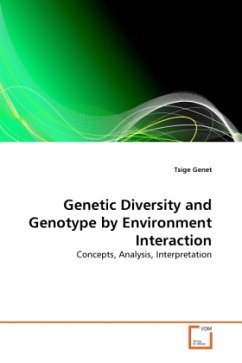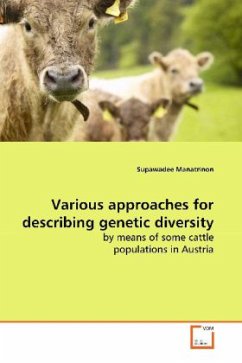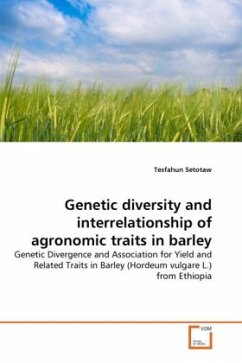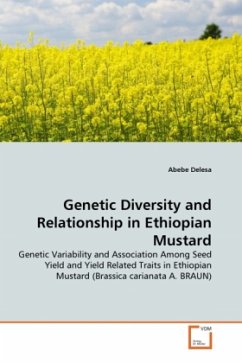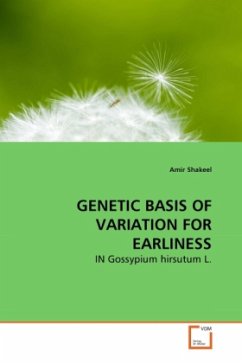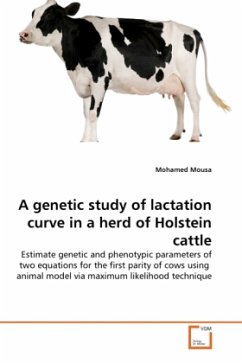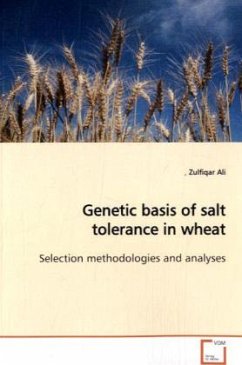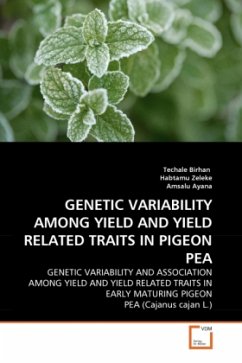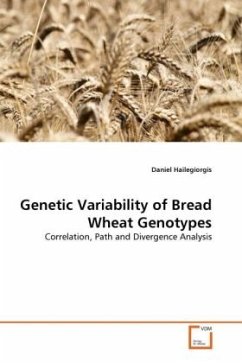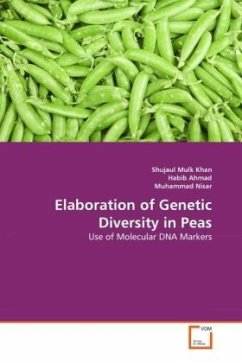
Elaboration of Genetic Diversity in Peas
Use of Molecular DNA Markers
Versandkostenfrei!
Versandfertig in 6-10 Tagen
32,99 €
inkl. MwSt.

PAYBACK Punkte
16 °P sammeln!
Screening of the genotypes through plasmid assisted technology provides an efficient and handy tool for elaborating genetic relationships among the genotypes. Pea (Pisum sativum L.) genotypes (populations) obtained from different sources were analyzed through RAPD, DNA markers for evaluation of intraspecific DNA variations. The results revealed that significant variations were present in minor bands. Major bands also showed significant diversity. Variations were also recorded in the density of some common bands. Maximum and minimum Genetic Diversity i.e., 80% and 20% was found among 08 and 23 ...
Screening of the genotypes through plasmid assisted technology provides an efficient and handy tool for elaborating genetic relationships among the genotypes. Pea (Pisum sativum L.) genotypes (populations) obtained from different sources were analyzed through RAPD, DNA markers for evaluation of intraspecific DNA variations. The results revealed that significant variations were present in minor bands. Major bands also showed significant diversity. Variations were also recorded in the density of some common bands. Maximum and minimum Genetic Diversity i.e., 80% and 20% was found among 08 and 23 comparisons respectively in banding profile. These variations can be used for enhancing variability, a prerequisite for crop breeding. Phylogenetic clustering of the genotypes revealed that genetic diversity is independent of origin or source of the genotypes. Forty eight genotypes of pea clustered in three main groups A, B and C comprising 23, 5 and 20 genotypes, respectively. A1 and C1 included the most distantly related genotypes and hence can be recommended for breeding to obtain genetically diverse populations.




